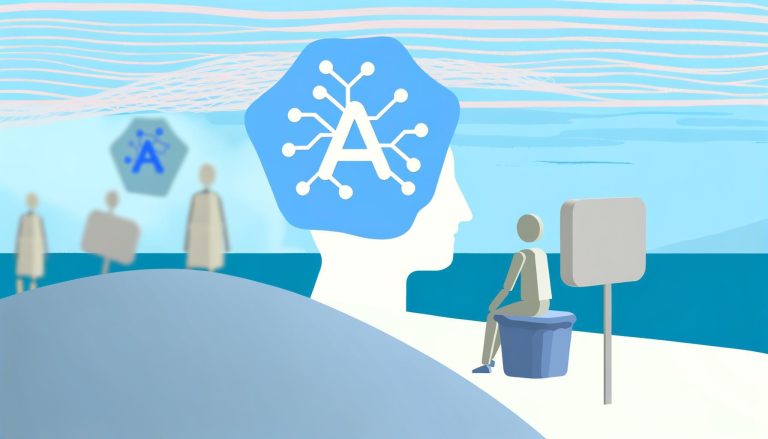Schema Therapy, an integrative approach that combines cognitive-behavioral therapy, Gestalt theory, and psychoanalytic principles, has been increasingly embraced for its effectiveness in addressing deep-seated psychological patterns developed in childhood. With the advent of Artificial Intelligence (AI), Schema Therapy can now be augmented, taking it to new heights. In this article, we explore AI-assisted Schema Therapy, its benefits, and practical ways to apply it to address early maladaptive patterns.
Understanding Schema Therapy
Schema Therapy aims to understand and modify persistent and problematic patterns of thinking, feeling, and behaving that have originated from unmet childhood needs. These patterns, known as early maladaptive schemas, affect how individuals perceive themselves and interact with others.
The Formation of Schemas
- Early Life Experiences: Children form schemas based on their interactions with parents, siblings, teachers, and peers.
- Innate Temperament: A child’s inherent characteristics influence their vulnerability to developing certain schemas.
- Environmental Factors: Socioeconomic status, cultural context, and traumatic events can shape these early patterns.
Common Maladaptive Schemas
- Abandonment: Belief that significant others will leave, causing emotional distress.
- Mistrust/Abuse: Expectation that others will hurt or abuse them.
- Emotional Deprivation: Belief that emotional needs will not be met by others.
- Defectiveness/Shame: Perception of being flawed and therefore unworthy of love.
- Social Isolation: Feeling cut off from others and the world.
AI-Assisted Schema Therapy: Innovations and Benefits
AI is transforming the field of psychology by creating new opportunities for assessment, diagnosis, and intervention. Here’s how AI is enhancing Schema Therapy:
1. Enhanced Assessment and Diagnosis
AI algorithms can process vast amounts of data from self-reports, physiological sensors, and social media activity to identify early maladaptive schemas. This allows for:
- Personalized Treatment Plans: AI provides detailed insights, facilitating highly tailored therapeutic interventions.
- Continuous Monitoring: Ongoing data collection enables real-time adjustments to treatment strategies.
- Predictive Analytics: AI can forecast potential relapses by detecting subtle changes in behavior and thought patterns.
2. Improved Therapeutic Interventions
AI tools can support therapists by providing real-time feedback and resources:
- Virtual Therapists: Chatbots can offer immediate support and cognitive restructuring exercises, reinforcing therapy sessions.
- Gamification: AI-driven games and activities help patients practice and internalize new patterns of behavior.
- Emotion Recognition: AI can analyze facial expressions, voice tones, and text inputs to understand a patient’s emotional state, offering appropriate interventions.
3. Accessible and Cost-Effective Care
AI makes mental health support more accessible:
- 24/7 Availability: AI-driven systems provide constant support, breaking geographical and temporal barriers.
- Cost Reduction: Automated solutions reduce the cost of care, making therapy more affordable.
- Scalability: AI can serve a large number of patients simultaneously, addressing the shortage of mental health professionals.
Practical Tips for Implementing AI-Assisted Schema Therapy
Integrating AI into the Therapeutic Process
For effective utilization of AI in Schema Therapy, consider these practical tips:
- Use AI as a Complementary Tool: AI should augment, not replace, human therapists. Combine AI-driven insights with traditional therapeutic techniques.
- Select the Right Tools: Choose AI tools that align with therapeutic goals and enhance the patient experience.
- Focus on Data Security: Protect patient confidentiality by using secure platforms and complying with data protection regulations.
- Regularly Review and Adapt: Continuously assess the effectiveness of AI tools and make necessary adjustments.
Engaging Patients with AI Tools
Encourage patient engagement with AI-assisted therapy through these strategies:
- Educate Patients: Explain the role of AI in therapy and how it benefits their treatment.
- Demonstrate Usability: Ensure that AI tools are user-friendly and provide training if needed.
- Set Clear Expectations: Outline what patients can expect from AI-assisted therapy and set achievable goals.
- Provide Continuous Support: Offer ongoing support and encourage patients to use AI tools regularly.
While integrating AI into therapy, it is crucial to maintain a balance between technological assistance and human touch, ensuring that patients feel understood and supported.
Overcoming Challenges
Implementing AI in Schema Therapy comes with challenges, such as:
- Ethical Considerations: Address ethical concerns related to AI usage, including patient consent and algorithm transparency.
- Technical Limitations: Be aware of and work around the limitations of current AI technologies.
- Personalization: Ensure AI tools are adaptable to individual needs and do not adopt a one-size-fits-all approach.
Conclusion
AI-assisted Schema Therapy offers a promising advancement in addressing early maladaptive patterns. By leveraging AI’s capabilities for assessment, real-time feedback, and accessibility, we can enhance the therapeutic process and provide more individualized and effective care. It is essential, however, to use AI as a complementary tool, ensuring that the human element remains central to therapy. With careful integration and adherence to ethical standards, AI can significantly contribute to the field of Schema Therapy, making lasting behavioral and emotional change more achievable for many individuals.
For those interested in exploring how technology can aid psychological growth, apps like Zenora can offer valuable tools for mood tracking, habit formation, and goal setting to complement and enhance the therapeutic journey.





